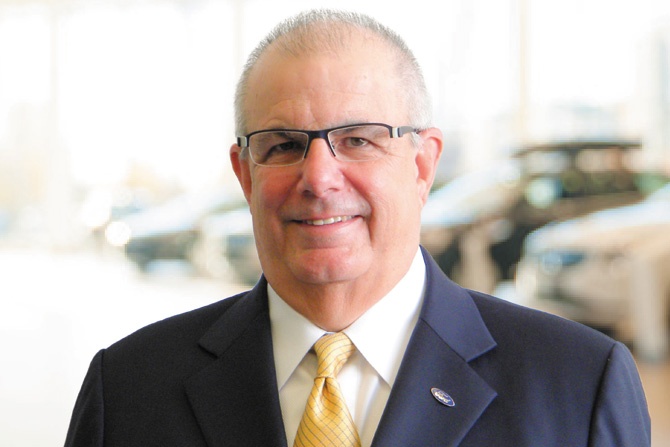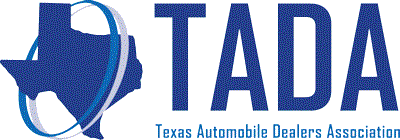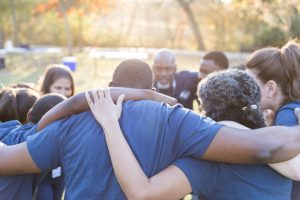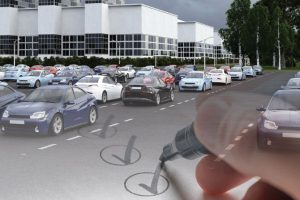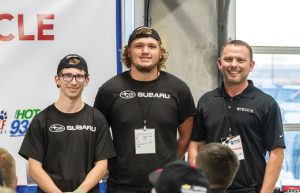TADA recently sat down with Joe Chastang, our 2022 chair, to learn more about him, his years in the Texas auto industry and his family. We enjoyed getting to know him and appreciate the time he gave us.
What is your educational background?
After high school, I drove a parts truck during the day and took business classes at night at the University of Houston. However, I started selling when I was in my early 20s and did not graduate.
Leaving school doesn’t mean you are out of school; it just means you are in a different kind of school. The biggest thing college teaches you is how to learn.
Tell us about how you became a dealer.
My dad came to Houston in the 1930s. He was an automotive salesman. Growing up, I would take a bus to the dealership to hang out, and I worked in the parts department for $1 an hour during the summer I was 15. When I wanted to start selling vehicles, my dad told me that the dealership only hired experienced salespeople. He told me I needed to get the training somewhere else. I found a job at a Chevy store.
When I was 25, my first management job was as a sales manager for the Rush store on the Gulf Freeway with 15 salespeople and a pickup on a pole. Mr. Rush let us run with it, we hired good people, and we were fortunate. The dealership went from doing poorly to becoming the country’s No. 2 GMC retail store.
Mr. Rush was a Peterbilt and GMC dealer, so the work was a mixture of commercial and retail. I sold light-duty pickups and commercial, heavy-duty trucks.
I started working for Volvo Heavy Truck in 1991. Volvo hired me to run the dealership in Houston. It was losing a lot of money and doing poorly. My brother was working there, too. I reported to the then-president of Volvo Trucks U.S., Karl Trogen, and I talked with him three times a week.
We turned the store around quickly, but Volvo decided to sell all their stores about a year later. Karl Trogen said Volvo would help me if I wanted to buy one of them. We closed the deal in February 1994, and we repaid the Volvo loan within a year.
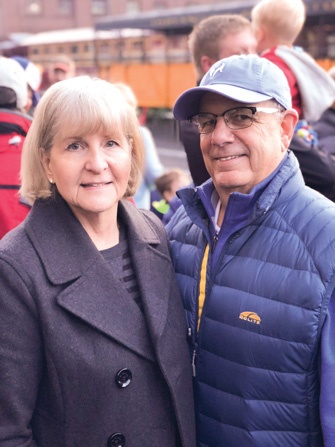
Mary and Joe Chastang
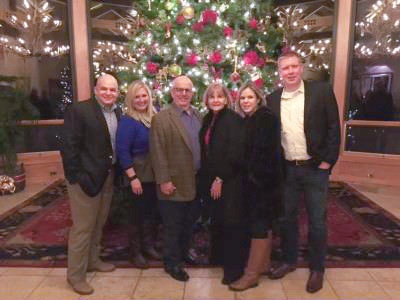
Above image left to right: Patrick and Meredith Chastang, Joe and Mary Chastang, and Mandy and Dennis Venghaus
Left image: Mary and Joe Chastang
Please tell us about your father, Claude Chastang.
He taught me everything I know about selling, and he treated people well. When I first became a manager, I could be too hard on people, but my dad would say, “You need to be a little nicer. You can’t be that rough.” He could be very direct when he told me how to act. It wasn’t easy to modify my approach, but he helped me.
Please tell us about the other family members who have been involved in the business.
For a while, my brother and dad both worked for me. My brother still does. We have a great relationship, and his office is next to mine.
My wife, Mary, handled human resources for the first five years in business. After about five years, she didn’t work unless she was needed. We have been happily married for almost 46 years, and we have two children, Patrick and Mandy.
Patrick is the general manager now. Mandy played softball through college, earned a CPA and worked for PWC. She came to the dealership in 2009. Mandy’s husband, Dennis Venghaus, is a CPA, too. He came to us from the oil and gas business. We were very fortunate to hire Dennis just a little over a year ago.
Patrick, Mandy and Dennis are going to be running everything eventually. They are smart, and they care about the business, the employees and customers.
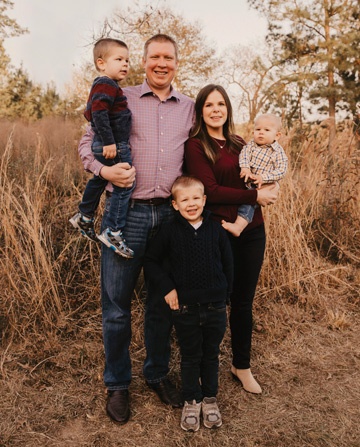
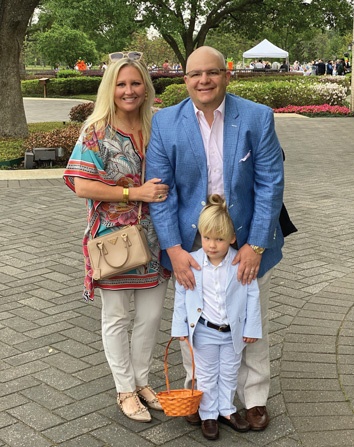
Who have your mentors been? I’m sure your father mentored you, but have there been others?
Yes. Karl Trogen and Marvin Rush were mentors, and so was Cal Wallace. Cal was the general manager of the Peterbilt store and gave me my first job as a manager. He was hard on me, but I liked the pressure. I thought everybody liked it like that, but not everybody does, and not everyone responded to it the way I did.
Some of my employees have been with me since I bought the dealership. I firmly believe people will do anything for you as long as they know you care about them. Then you can push them to do their best.
Your dealerships have worked extensively with Ford and Autocar commercial fleets. How did you end up specializing in these markets?
It’s just because of my background. Most dealers come out of the retail side, but I have experience on the commercial and retail sides. A commercial store is only slightly different from a retail store. You are still dealing with people. If you treat them well and know your product, your skills transfer to most businesses.
Approximately 85% of your sales come from repeat or referral clients. What would you recommend to other dealers who want to build that kind of record?
Make customers, keep them and try not to irritate them. That means being long-distance runners, not sprinters.
The biggest opportunity for building repeat business is taking care of customer problems. I am a big believer in this. If you treat people well when they have a problem, they will come back to you for sure.
We give people the authority to handle problems at the lowest possible level. The higher a problem goes, the more expensive it gets, and the more likely you will lose customers. Mechanical things break. Surprise the customer by just taking care of the problem. That’s what dealerships that have been in business a long time do.
People value relationships more than they value the lowest price, and they want to be appreciated for their business. Customers like to go into a dealership and see the same people they usually do business with, and they feel comfortable when they know they will be treated well and get a fair deal.
Dealerships used to be pretty much the same, but people expect a higher level of service than they used to. That’s going to continue. Since customers can get the same product from many other places for the same price or less, your level of service is what differentiates your business from other businesses.
People value relationships more than they value the lowest price, and they want to be appreciated for their business. Customers like to go into a dealership and see the same people they usually do business with, and they feel comfortable when they know they will be treated well and get a fair deal.
Why is TADA membership important?
You have a more prominent voice as a member of TADA than you do as a dealer. TADA amplifies your voice even if you are part of a big group. TADA has more members than any other state dealership organization. In Texas, most of the state’s dealers are members. TADA includes everyone from the little dealers in towns of 5,000-6,000 to the big dealers in the big cities like Houston or Dallas.
Members can pick up the phone and call Karen Phillips, our in-house lawyer, and get a quick answer or advice about any legal issue. The question could be about advertising rules or any issue you might have, and calling her doesn’t cost you anything.
Another advantage is that the association gives you opportunities to make friends. Texas dealers will bend over backward trying to help you. That’s important, and it helps your customers when you have other dealers who can help them, too.
There are many industry disruptors right now, including the pandemic and EV. Ford has positioned itself as a leader in the EV future. What are your thoughts about the effect of these and other disruptors on the dealership industry?
Direct sales are bad for dealers, but they are also bad for customers. Volvo and all the heavy-duty dealers all used to be direct. The prices were higher, and the service was worse. Value decreased.
Manufacturers are good at building vehicles, but they are not as invested in service. We are set up to do different things. Our work is different from theirs, just like an eye doctor has different work than a dermatologist. It’s not good for the consumer when we get into each other’s business.
Manufacturers will work with us as the service side of the business declines after we sell more EVs. They will help us fill the gap by finding other services we can provide, but I don’t know what those services will be.
What is the biggest issue facing Texas dealerships in the next three to five years?
The industry has changed so much, and we have an opportunity to do better in several areas. I don’t know all the details, but we need to work hard and smart and adapt quickly to the changes. Expectations about the level of customer service are going up. The question is, can we change as fast as customer expectations?
There are other challenges, too. We are all used to having a certain amount of inventory, but we will have to adjust to having less. As everything shifts toward an EV market, we will need charging stations. Service problems will change.
Some people think individual dealers can’t continue to succeed, but not everybody wants to buy or work for the same size of a company. Also, bigger companies are harder to shift when the market changes.
What are your plans as the 2022 TADA chair?
We want to let people know TADA is working in their best interest.
Most Texas dealers are members. We represent all the dealers, from the biggest to the smallest, and we want more participation from everyone because that will improve the organization. Don’t be surprised if someone calls you and asks you to participate more.
We represent all the dealers, from the biggest to the smallest, and we want more participation from everyone because that will improve the organization.
What do you think dealers should focus on right now to be successful?
Embrace the changes that are coming.
What three pieces of advice would you give someone if you were mentoring them?
- Treat people the way you want to be treated. People will help you if you do.
- Show up on time and work hard. As long as you are there anyway, you might as well work.
- Nobody owes you respect, regardless of who you are. It is a gift you earn because of how you treat others. It is not something you take. The same is true for everyone, including employees and customers.
What is your favorite car?
Anything new. I still like going out when vehicles come off the transport and getting in some of them. I like the smell, checking out the new models and seeing any change on the F-150.
What are you currently driving?
I am driving an Explorer and a Bronco. (I bought the Bronco.)
What do you like to do for fun?
I have four grandsons. I love playing with them, and I enjoy everything that has anything to do with them. Patrick and Meredith’s son is almost four years old, and Mandy and Dennis have three sons, ages six, four and two. All the grandsons love playing with toy cars.
I also like almost everything about sports because I am big on competitive people. I used to play softball and flag football. I also play golf. Everybody wants to win, but not everybody will do what it takes. People who hate to lose will work harder to win because they want to be good at whatever they do. Salespeople need that mindset.
Do you have any final words?
This year will be a good business year, and TADA is the best automotive association in the country.



